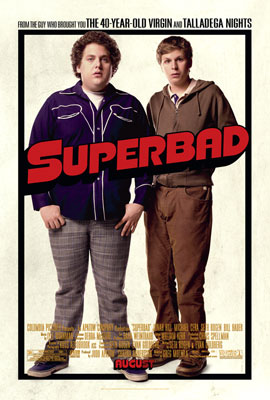Monday, July 09, 2007
Phones, Internet, HDD Media Players and McD's
We've just purchased a wee HDD media player with a 320 GB hard drive in it for watching downloaded movies on the TV and so far kind of so good. For those that don't know you put downloaded movies onto this device and plug it into your TV. You can then scroll through folders on screen and play whatever you have downloaded. The number of movies you can fit onto it depends on the GB's you have but with 320 we should be able to store over 200 movies without much trouble. The downsides are so far that our machine won't support Korean subtitles. They come out as scrambled gibberish. Also occasionally you get a file with a few bugs and the picture quality will be poor for a while, or the sound will turn to people talking under water but by and large the sound quality and picture quality is about what you'd get if you rented the film on video after it had been rented a dozen times. Sometimes its even up to dvd standard. Can't complain though when its free and you don't have to move your arse off the couch at all. Just watch it get fatter.
Although that would be hard since I've spent 3 days so far making a fence at the front of our place.
But on the internet and phones. We switched to slingshot for our landline last week after deciding that 56 dollars a month with Telecom to call out and receive the odd call was a fucking ripoff. But since joining slingshot we can't receive any calls. The phone rings once and then cuts out. I've talked to them and they don't know what's wrong yet and I'm supposed to call back tonight. Cheers guys. useless bastards.
It also takes several hours to download a movie with our 'broadband' connection. Once or twice it miraculously did it in an hour but often it takes up to 10 hours to get the required files. Compare that to Korea where you can sometimes download movies in a little over 5 minutes.
And the reason? Something called high population density and something else called COMPETITION! Things are definately getting better in NZ but its at such a snails pace. After having spent a lot of time in Korea it is bloody depressing how crap we are at times. I just have to remind myself that at least I can drive off to a beach when I want and by living in a sprawling burb city I can choose from a few different parks within walking distance.
Even McDonalds is fucking us over! If all the fucking ingredients are "made in New Zealand" then how come it costs so much? It isn't a plasma screen TV coming from north eastern China.
Although that would be hard since I've spent 3 days so far making a fence at the front of our place.
But on the internet and phones. We switched to slingshot for our landline last week after deciding that 56 dollars a month with Telecom to call out and receive the odd call was a fucking ripoff. But since joining slingshot we can't receive any calls. The phone rings once and then cuts out. I've talked to them and they don't know what's wrong yet and I'm supposed to call back tonight. Cheers guys. useless bastards.
It also takes several hours to download a movie with our 'broadband' connection. Once or twice it miraculously did it in an hour but often it takes up to 10 hours to get the required files. Compare that to Korea where you can sometimes download movies in a little over 5 minutes.
And the reason? Something called high population density and something else called COMPETITION! Things are definately getting better in NZ but its at such a snails pace. After having spent a lot of time in Korea it is bloody depressing how crap we are at times. I just have to remind myself that at least I can drive off to a beach when I want and by living in a sprawling burb city I can choose from a few different parks within walking distance.
Seoul Most Wired WorldwideAnd guess what?
By Kim Tae-gyu
Staff Reporter
Every household in and around Seoul is hooked up to high-speed Internet services, with the penetration rate exceeding 100 percent in May. According to the Ministry of Information and Communication Sunday, 14.3 million out of the country's 15.9 million households nationwide are linked to broadband Internet connections as of May.
In particular, Seoul and the surrounding Gyeonggi Province posted 106.8 percent and 100.7 percent in the broadband penetration rate, respectively. Incheon, also encircled by Gyeonggi Province, came in third with 99.2 percent.
"The average broadband penetration rate at the capital territories including Incheon and Gyeonggi Province surpassed 100 percent," said an official at the Information Ministry.
"This means every household in the area gets access to high-speed Internet connections. Seoul and its vicinity are most wired in the globe," he said.
The country's two landline operators KT, and Hanaro Telecom have spearheaded the introduction and propagation of the high-speed Internet through a two-way rivalry.
The runner-up player Hanaro ignited the competition in 1999 by embarking on the asymmetric digital subscriber line (ADSL) for the first time in history. Hanaro garnered notable success with the world's first genuine high-speed Internet service that offered the always-on connectivity to subscribers.
Spurred by Hanaro, the business bellwether KT followed suit shortly thereafter, thus sparking the sign-up blitz with affordable prices. This played a pivotal role for the rapid penetration of the Internet.
However, there is a flip side of the much-hailed broadband success.
Although Seoul and the surrounding regions boast of 100 percent usage rates of the Internet, the figures are very low in some areas, the problem called geographical digital divide. In South Jeolla Province, the penetration rate was merely 58.4 percent in May for the worst record followed by 69 percent at North Gyeongsang Province.
"We will continue to put forth efforts to spread the Internet into the rural areas or islands so that residents there can also enjoy the high-speed Internet," the anonymous official said.
Even McDonalds is fucking us over! If all the fucking ingredients are "made in New Zealand" then how come it costs so much? It isn't a plasma screen TV coming from north eastern China.
Korea Ranks 16th in 'Big Mac' IndexTo be honest though I think somebody may actually have their figures arse about tit. If it is $5.89 US then that would make it about 8 dollars NZ which it sure as shit isn't. Do they calculate it some other way?
By Kim Yoo-chul
Staff Reporter
Britain's 'Economis' magazine reported that the South Korean won is undervalued against the U.S. dollar by 8 percent according to the internationally viable, and self-penned, "Big Mac" index to measure currency discrepancies.
The article stated that a Big Mac in South Korea costs $3.14, which is the 16th highest in price among 47 countries surveyed. The hamburger in the United States costs $3.41.
The top price for a Big Mac was recorded in New Zealand ($5.89) followed by Switzerland ($5.20), Denmark ($5.08), Sweden ($4.80), the Eurozone average ($4.17) and Turkey ($3.66).
The cheapest price for the burger was in China at $1.45. The magazine reported that the Chinese currency, the yuan, is undervalued against the dollar by 58 percent.
The Big Mac index, introduced by The Economist in 1986, is based on the notion that a currency's price should reflect its Purchasing Power Parity (PPP)
The Big Mac parity is the exchange rate, which means the hamburger costs the same abroad as it does in the United States. Comparing actual exchange rates with PPPs indicates whether a currency is overvalued or undervalued.
Labels: fence, HDD media player, internet, Korea, Mc'Donalds, movies, phone, Slingshot, Telecom
Comments:


















Post a Comment